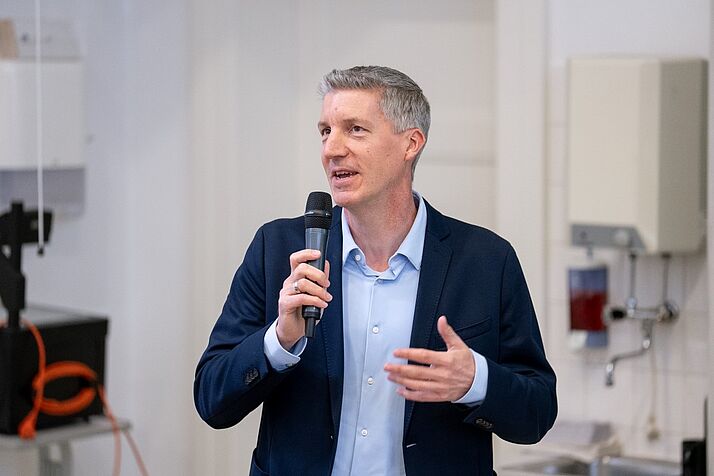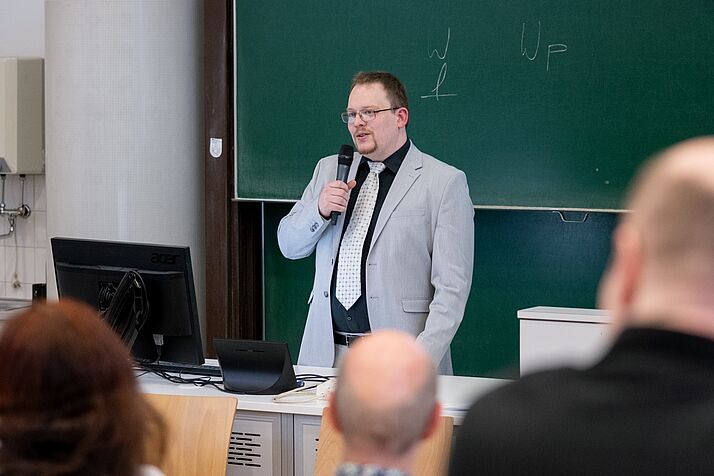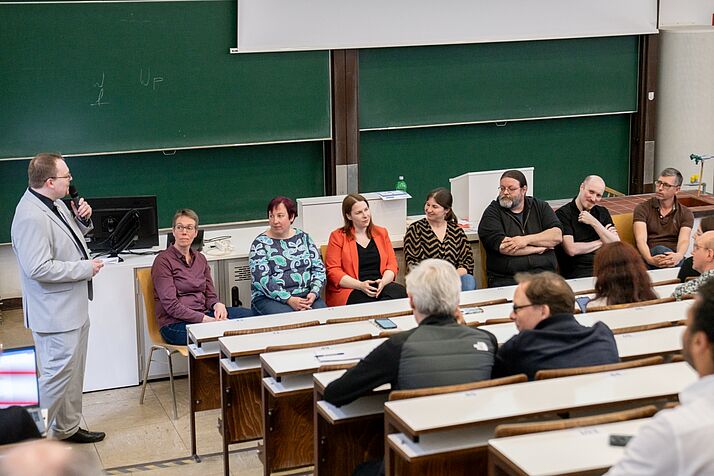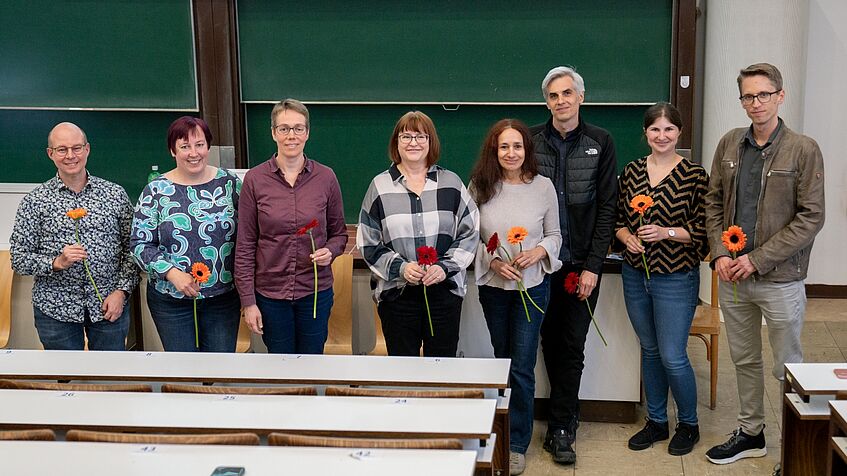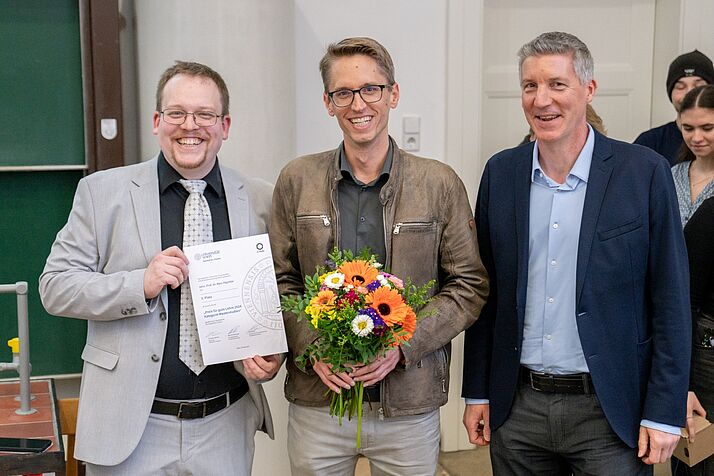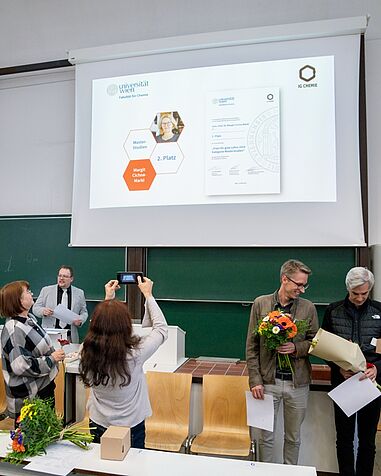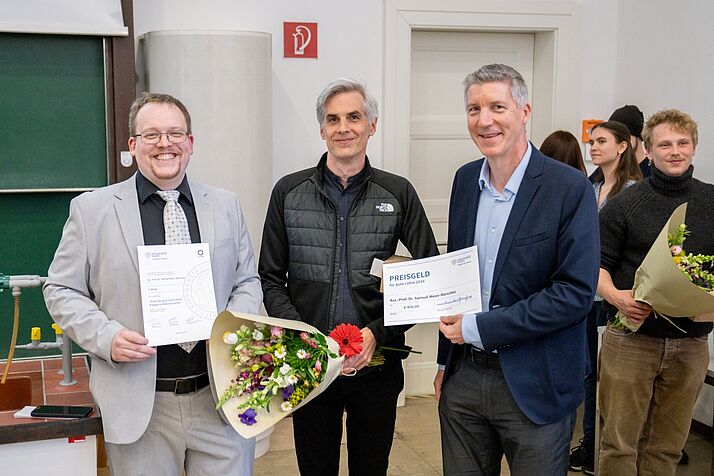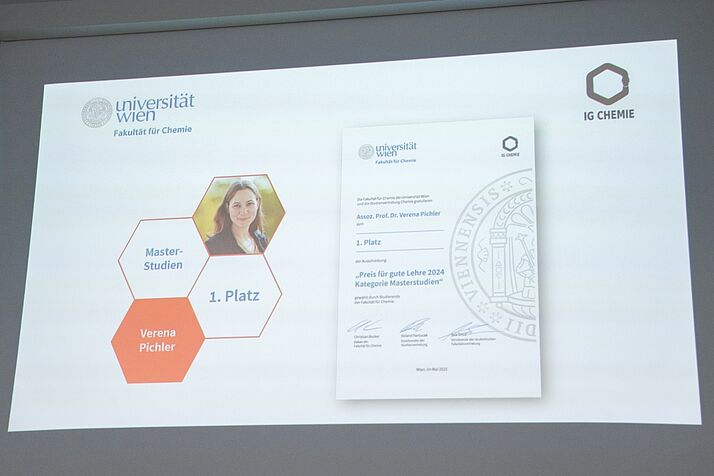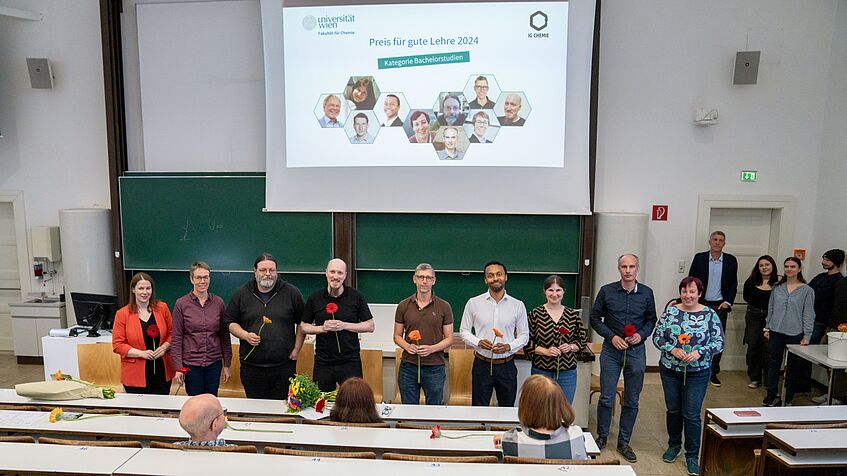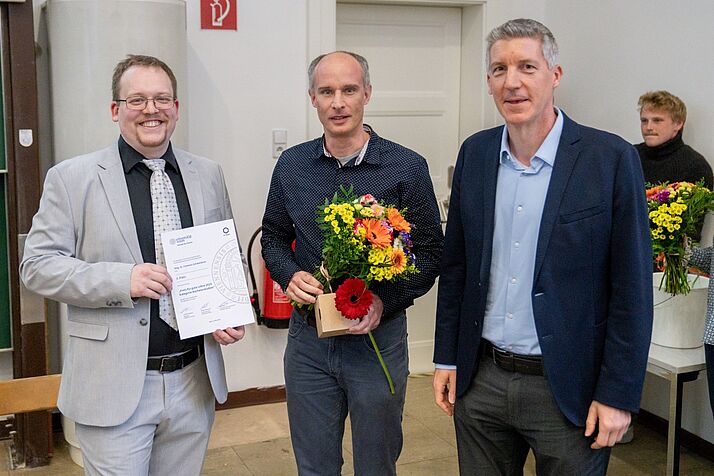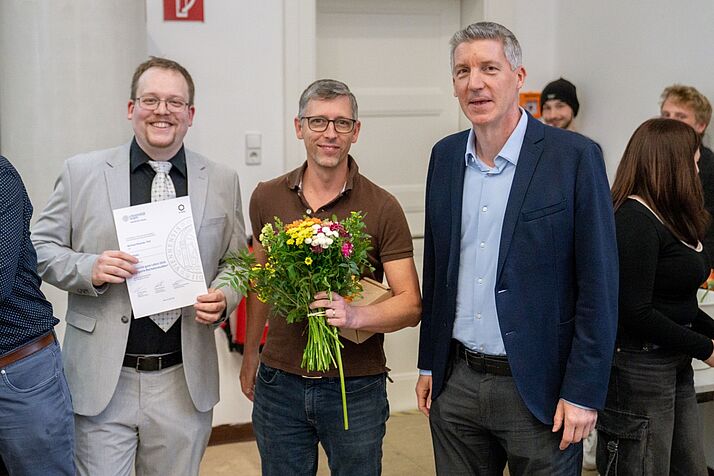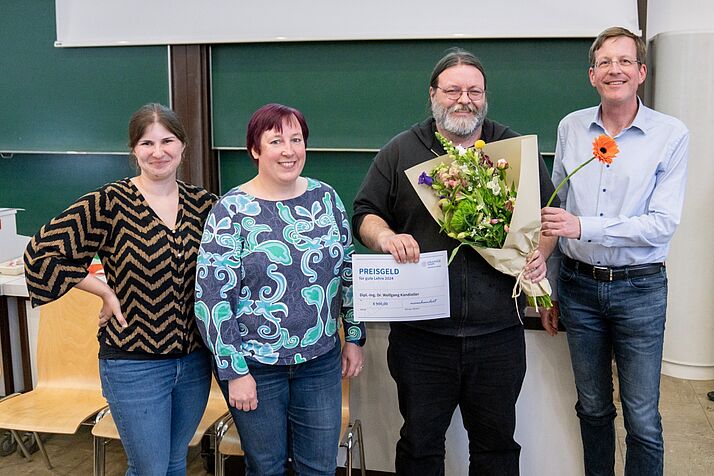Prize for Good Teaching 2024
On 12 May, the winners of the Faculty of Chemistry's Student Teaching Award were honoured for the fifth time.
Since 2020, the student council IG Chemie has organised this annual award for excellence in teaching. As of 2023, awards are presented separately in the Bachelor’s and Master’s programme categories. In the first round, students nominate up to three lecturers; in the second round, they vote to select the winners from the ten most frequently nominated candidates.
Dean Christian Becker opened the event by emphasising the importance of critical factual knowledge to help contextualise new data– even in an era of instant digital access to information. Especially in Bachelor's programmes, he noted, it is crucial to filter the abundance of material and focus on what students truly need to understand.
What makes good teaching?
Before the award ceremony, IG Chemie hosted a roundtable discussion with the nominees. Participants included Ellen Backus, Wolfgang Kandioller, Aron Igal Kropp, Michael Malarek, Katharina Pallitsch, Jessica Walker, and Elisabeth Hofer, who started as Professor of Didactics of Chemistry in April 2025. The central question was: What is the most important aspect of good teaching in 2024?
The panel unanimously agreed: teaching is successful when as many students as possible reach the learning objectives. Good teaching requires clear structure, accessible explanations, varied approaches, and a willingness to respond to individual needs. For Ellen Backus, it is particularly important to make her courses interactive and to respond to students' questions as fully as possible. Wolfgang Kandioller takes a similar view, even though this can be challenging in large lecture settings.
Participants expressed scepticism about the role of artificial intelligence in teaching. While AI may assist with repetitive tasks, it should not be used as a go-to reference, particularly by first-year students. Instead, students need to develop the skills to evaluate which answers they can trust. Aron Igal Kropp emphasised that we are still a long way from genuine artificial intelligence, and that current algorithms would require considerable resources to be trained and specialised for specific tasks to become a useful instrument for teaching. Elisabeth Hofer also warned of a potential decline in social interaction through the use of digital tools, noting that teaching and learning are deeply social processes.
To close the discussion, participants shared their personal experiences and advice for colleagues and future teachers. “Teachers should value feedback from students," urged Wolfgang Kandioller: "Only through this feedback ccan we improve and grow." Michael Malarek agreed: "You should never be fully satisfied with what you have achieved – and above all, pass on your enthusiasm for the subject to your students.”
And the winners are...
Roland Pantucek then announced the winners of the 2024 Prize for Good Teaching:
Master’s programmes category:
- 1st place: Samuel Meier-Menches (Assistant Professor of Translational Precision Analytics in Individualised Medicine) and Verena Pichler (Faculty alumna and Associate Professor at the Department of Pharmaceutical Sciences)
- 2nd place: Margit Cichna-Markl (Professor of Analytical Chemistry)
- 3rd place: Marc Pignitter (Professor of Analytical Food Chemistry and Food Development at the Institute of Physiological Chemistry)
Bachelor’s programmes category:
- 1st place: Wolfgang Kandioller (Senior Scientist, Institute of Inorganic Chemistry)
- 2nd place: Michael Malarek (Senior Scientist and Senior Lecturer, Institute of Inorganic Chemistry)
- 3rd place: Clemens Schmetterer (Senior Lecturer, Institute of Physical Chemistry)
Dean Christian Becker congratulated the winners on behalf of the Faculty, which is delighted to be supporting the award again this year in recognition of the importance of teaching excellence.
Interviews with the nominees, including those from previous years, can be found on the IG Chemie website.

